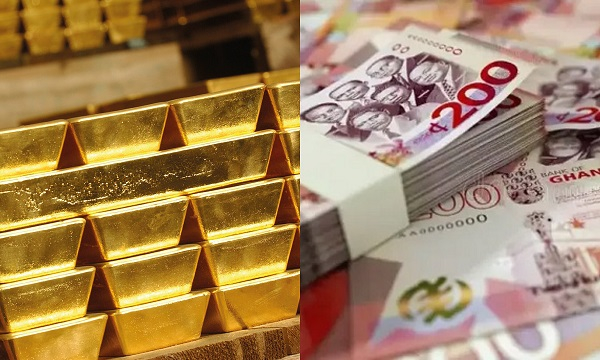A sharp drop in global gold prices could weaken Ghana’s foreign reserves and destabilise the cedi, UK-based research firm Fitch Solutions has warned in a new economic outlook.
According to the report, such a decline could result from a global return to traditional trade policies in the United States and the resolution of major geopolitical tensions around the world, which have previously helped gold prices soar.
Fitch noted that Ghana’s reliance on gold exports to build international reserves means a sudden fall in prices would hit the country’s foreign exchange earnings hard, pressuring the Bank of Ghana (BoG) to defend the cedi in a tighter environment.
“This would keep inflation elevated, lead to a weakening in consumer and investor sentiment and prompt the central bank to keep interest rates higher for longer,” the report said in its downside risk forecast.
The agency stressed that without strong reserves or high export earnings, Ghana would face renewed currency depreciation, triggering a possible sell-off of the cedi, which has already experienced volatility in recent months.
On a more positive note, Fitch said if the cedi strengthens further — driven by higher gold prices and improving investor confidence — the inflation rate could fall faster than currently projected.
This would give the Bank of Ghana room to cut interest rates, easing the cost of borrowing and potentially encouraging more credit uptake by the private sector.
“This would support stronger private consumption and prompt the Bank of Ghana to ease monetary policy more rapidly,” the report added.
Inflation in Ghana, while declining from its record highs in 2022 and 2023, remains well above pre-pandemic levels, limiting household purchasing power and business expansion.
Despite any relief on the inflation front, the government’s spending levels are expected to remain low throughout 2025. Fitch forecasts negative contribution from government consumption, largely due to Ghana’s commitment to fiscal consolidation under its International Monetary Fund (IMF) programme.
Ghana entered a $3 billion IMF bailout in 2023 to stabilise the economy and restructure its debts. As part of this agreement, the government is required to reduce fiscal deficits and limit borrowing, even if it means cutting back on public sector spending.
The report explained that the combined effect of tight fiscal policy and potential gold market swings could significantly influence Ghana’s economic outlook heading into 2025 and beyond.
Ghana is Africa’s top gold producer and among the top 10 globally. In recent years, high gold prices have helped shore up the country’s reserves, especially during periods of high inflation and reduced access to global capital markets.
A stable or rising gold price supports cedi stability, makes imported goods cheaper, and helps ease pressure on household budgets — which have been strained by years of economic uncertainty.
“A stronger exchange rate amid elevated gold prices would support the disinflation process, ease pressure on household budgets, and support consumer spending in the quarters ahead,” Fitch concluded.
As Ghana prepares for a critical year under IMF monitoring and upcoming national elections, global economic shifts — especially in the gold market — could either ease or intensify existing challenges. The government and central bank must balance external risks with prudent internal policies to avoid a renewed economic downturn.
